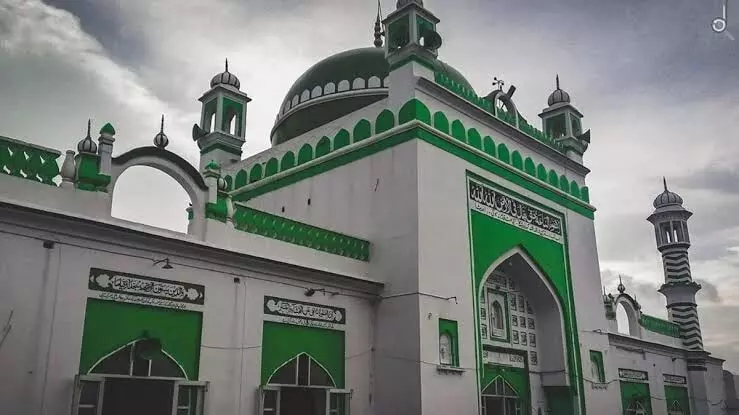Uttarakhand's Crackdown on Illegal Madrasas: Governance Reform or Marginalization Debate !

Representational Image
The recent crackdown on unregistered madrasas in Uttarakhand by Chief Minister Pushkar Singh Dhami's government has ignited a complex debate, intertwining governance, minority rights, and cultural integration. The ceiling of 136 unregistered madrasa’s, justified by the administration as a measure to address security concerns and ensure compliance, has raised critical questions about the state's regulatory mechanisms and its broader implications for minority communities.
At the heart of this issue lies the question of governance. The existence of approximately 500 unregistered madrasa’s alongside 450 registered ones points to a significant lapse in oversight during the BJP's eight-year tenure in Uttarakhand. If these institutions have been operating without proper documentation, it reflects a failure in the state's regulatory framework. Critics argue that the administration's sudden focus on these madrasas appears reactive rather than proactive, raising concerns about the timing and intent behind the crackdown.
The introduction of Sanskrit education and the inclusion of texts like the Ramayana and Geeta in state-funded schools, including madrasas, add another layer of complexity. Proponents view this as a step towards cultural integration, aligning with the state's broader educational reforms. The Uttarakhand Madrasa Board's plan to introduce Sanskrit as an optional subject in over 400 madrasa’s reflects an effort to modernize the curriculum and integrate mainstream subjects like science and computers. However, critics argue that such measures risk imposing a cultural narrative that may not align with the traditional focus of madrasas on Urdu and Farsi. This tension underscores the delicate balance between modernization and preserving cultural identity.
The broader concern is whether this crackdown is a genuine effort to ensure transparency or if it reflects an underlying bias against minority communities. The government's emphasis on investigating funding sources and ensuring compliance is commendable in principle. However, the lack of transparency in the process and the absence of specific expenditure details for madrasa’s fuel skepticism. Minority leaders and organizations have expressed fears that such actions could marginalize their communities further, questioning the fairness of the inquiry process.
Experts emphasize the need for a balanced approach. Mufti Shamoon Qasmi, chairman of the Uttarakhand Madrasa Board, has called for transferring students from sealed madrasas to nearby registered institutions to ensure their right to education is not compromised. This highlights the importance of safeguarding students' educational rights while addressing governance issues. Additionally, the state's focus on border areas, where unregistered madrasas are reportedly concentrated, raises security concerns that warrant careful investigation.
The political undertones of this crackdown cannot be ignored. The BJP's narrative of cultural integration and national security resonates with its core voter base, but it risks alienating minority communities. The inclusion of Sanskrit and Hindu texts in the curriculum, while framed as educational reform, may be perceived as an attempt to homogenize cultural identities. This perception could deepen societal divisions, undermining the state's efforts to foster inclusivity.
In conclusion, the crackdown on unregistered madrasas in Uttarakhand is a multifaceted issue that demands a nuanced approach. While ensuring compliance and transparency is essential, it must not come at the cost of marginalizing minority communities or compromising students' educational rights. The administration must address lapses in governance, engage with minority leaders, and ensure a fair and transparent inquiry process. Only then can it strike a balance between modernization, cultural integration, and inclusivity, fostering a harmonious and progressive society.
